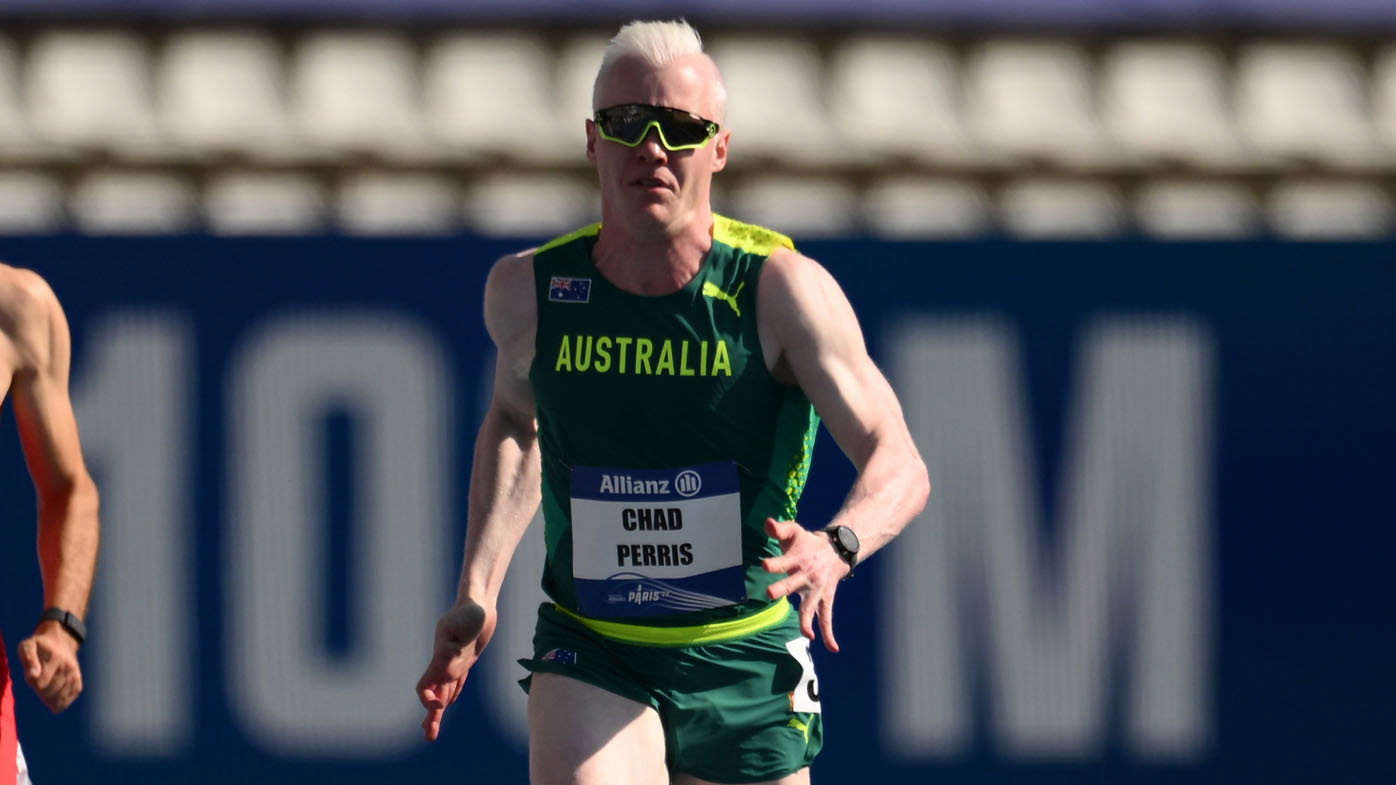Painful memories come flooding back as Paralympic sprinter Chad Perris recollects his schooling days, when bullies would call him Casper, as in Casper the ghost, and mock him in any other way possible about his albinism. His self-esteem was in tatters and he had little direction.
The 32-year-old is thankful that his schooling days ended a long time ago. For most of the time since, he's been known and admired as the White Tiger. For someone who's whiter than most and blisteringly quick, the nickname is perfectly fitting.
"I think there's a difference between being called names where people are bringing you down and being called names where it comes from a place of love and people use it to accept you," he tells Wide World of Sports.
READ MORE: De Minaur's grim reaction despite winning at Wimbledon
READ MORE: 'In a fog': Star breaks down for devastating reason
READ MORE: Maroons are making Fifita claims that don't stack up
In Perris' case of albinism, not only are his skin and hair abnormally white, he can only see about five metres ahead of him and his vision is always blurry.
He was given his White Tiger nickname when he rocked up at the Perth Beach Tigers, keen to try Aussie rules as a sports-mad 17-year-old.
"At the start I didn't really like the nickname and that was because I had come from school and I thought it was a term people were using to bring me down, but I got to a point where I realised that I was accepted into a group of people and I had been given a nickname, as 99 per cent of people in the footy club had. So I embraced the nickname and still have it stuck with me today," Perris recalls.
"I had a shift in mentality because I knew it wasn't coming from a place of hate like it was at school. It was coming from a place of endearment.
"I look back on photos of me from school and I definitely had very, very low self-confidence and my mental health probably wasn't great, and that's for standing out in the crowd and looking different to everybody else. Having albinism, you walk through and everybody knows who you are.
"I am now definitely a lot more confident and couldn't give a toss what anybody thinks of me when I walk down the street."
At the Stade de France at the Paris Paralympics, set to begin in 50 days' time, Perris will stare down the 100m straight with his specially designed glasses, load into the blocks and chase gold.
His career as a sprinter can be traced back to one footy off-season, when he hit up a local athletics club to keep in shape over summer. He hasn't played a game of footy since.

"I've definitely gained a lot of confidence [from being a sprinter]; I think that's something sport can do for people with a disability," says Perris, who took up athletics at the age of 20 and is now eyeing his third Paralympic appearance.
"A lot of the people I compete against and train with don't see me as someone with a disability. You look straight past the disability and look at the effort people put into the sport … That's probably the biggest thing that sport has given me; a confidence in life and direction that not a lot of other things could have."
Watching Perris run is a sight to behold. With a high knee lift, ferocious arm action and grit written all over his face, the Canberra-based sprinter explodes down the track.
He has a 100m personal best of 10.65 (+1.5 wind), set in Canberra last year.
The impact he's having off the track spurs him on.
"I get messages from other people with albinism and families of kids with albinism and they say they're watching me and I give them some inspiration," Perris says.
"Maybe their kids have albinism and they didn't know anything about the disability beforehand and they've searched it up and found me — I think it's pretty cool to be a role model for those people. Having parents talk to me about their kids watching the TV and seeing me on the screen — that's something I find really cool, too. To hopefully be able to inspire a generation of athletes or people with albinism, and not only about sport but anything in life and they know they can go and do it, I think is really powerful."
Help Australia's para-athletes get to Paris! Click here to donate.

Leave a Reply
You must be logged in to post a comment.